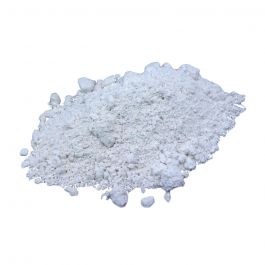- Language
- 🇺🇸
- Joined
- Mar 1, 2024
- Messages
- 322
- Reaction score
- 415
- Points
- 63
ali ne bi bilo zaradi aluminija to bolj sumljivo? potem je nekako očitno, da nekaj skrivate. ampak ne bi vedel, nikoli prej nisem pošiljal zdravil po pošti.
- Language
- 🇬🇧
- Joined
- Jan 19, 2024
- Messages
- 45
- Reaction score
- 28
- Points
- 18
Veliko ljudi pravi, da aluminij pomaga blokirati rentgenske žarke, vendar mislim, da je to mit
Svinec pomaga blokirati rentgenske žarke zaradi svoje gostote 11400 kg/m³, aluminij pa ima le 2700 kg/m³, zato mislim, da je neuporaben.
je dober le za zavijanje droge
Svinec pomaga blokirati rentgenske žarke zaradi svoje gostote 11400 kg/m³, aluminij pa ima le 2700 kg/m³, zato mislim, da je neuporaben.
je dober le za zavijanje droge
↑View previous replies…
- Language
- 🇺🇸
- Joined
- Jan 23, 2024
- Messages
- 110
- Reaction score
- 47
- Points
- 28
- Deals
- 12
sranje! aluminijasta folija ne blokira rentgenskih žarkov.
vaš drog je kup organskih molekul. organske so na rentgenskih žarkih videti drugače kot kovinske in jih je mogoče razlikovati.
če želite blokirati rentgenske žarke, morate svoj dope potopiti v podobno organsko enveronogo, da bo videti kot nekaj nedolžnega. toda na tej točki se ustavljam, saj nisem pripravljen razkriti svojih metod prikrivanja.
vaš drog je kup organskih molekul. organske so na rentgenskih žarkih videti drugače kot kovinske in jih je mogoče razlikovati.
če želite blokirati rentgenske žarke, morate svoj dope potopiti v podobno organsko enveronogo, da bo videti kot nekaj nedolžnega. toda na tej točki se ustavljam, saj nisem pripravljen razkriti svojih metod prikrivanja.
- Language
- 🇺🇸
- Joined
- May 8, 2024
- Messages
- 36
- Reaction score
- 9
- Points
- 8
Theoretically aluminum can shield against electromagnetic waves, also x-ray.
But the thin layers used mostly are not enough.
There are different ways through which a material can block electromagnetic waves.
Scattering and absorption which often happens in high density, but it also works through the conductivity of a metal, and aluminum and copper for example have a good conductivity, and this allows them to absorb energy from the electromagnetic radiation pretty well, because of their free electrons.
But you would need a thick layer of aluminum, the normal foil is not going to do that well-
But the thin layers used mostly are not enough.
There are different ways through which a material can block electromagnetic waves.
Scattering and absorption which often happens in high density, but it also works through the conductivity of a metal, and aluminum and copper for example have a good conductivity, and this allows them to absorb energy from the electromagnetic radiation pretty well, because of their free electrons.
But you would need a thick layer of aluminum, the normal foil is not going to do that well-
- Language
- 🇺🇸
- Joined
- May 8, 2024
- Messages
- 36
- Reaction score
- 9
- Points
- 8
Also the shielding ability of aluminum is better (lot better) at lower frequencies, and thickness would need to be increased a lot to shield effectively against x-rays. Also at such high frequencies like x-ray denser materials with high Z are normally required because they have a higher probability of interacting with high energy electromagnetic waves, but theoretically every conductor can block them t some point, also aluminum, but you need a very thick layer which is not practical.

